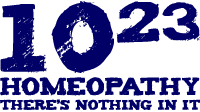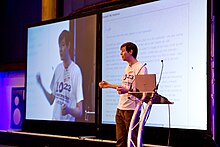
James Randi was a Canadian-American stage magician, author, and scientific skeptic who extensively challenged paranormal and pseudoscientific claims. He was the co-founder of the Committee for Skeptical Inquiry (CSI), and founder of the James Randi Educational Foundation (JREF). Randi began his career as a magician under the stage name The Amazing Randi and later chose to devote most of his time to investigating paranormal, occult, and supernatural claims. Randi retired from practicing magic at age 60, and from his foundation at 87.

Scientific skepticism or rational skepticism, sometimes referred to as skeptical inquiry, is a position in which one questions the veracity of claims lacking scientific evidence. In practice, the term most commonly refers to the examination of claims and theories that appear to be unscientific, rather than the routine discussions and challenges among scientists. Scientific skepticism differs from philosophical skepticism, which questions humans' ability to claim any knowledge about the nature of the world and how they perceive it, and the similar but distinct methodological skepticism, which is a systematic process of being skeptical about the truth of one's beliefs.

The Irish Skeptics Society (ISS) is a scientific skeptical organisation based in Ireland. It was launched in December 2002 and publishes a newsletter called Skeptical Times. The ISS is a member of the European Council of Skeptical Organisations (ECSO).

NZ Skeptics is a New Zealand incorporated society created in 1986, with the aim of promoting critical thinking. The main areas of interest to the NZ Skeptics are claims of psychic abilities, alternative medicine, creationism and other pseudoscientific claims. At its founding in 1986, it was known as the New Zealand Committee for the Scientific Investigation of Claims of the Paranormal (NZCSICOP). In 2007 the name was formally changed to NZ Skeptics Incorporated.

Skeptics in the Pub is an informal social event designed to promote fellowship and social networking among skeptics, critical thinkers, freethinkers, rationalists and other like-minded individuals. It provides an opportunity for skeptics to talk, share ideas and have fun in a casual atmosphere, and discuss whatever topical issues come to mind, while promoting skepticism, science, and rationality.
The Centre for Inquiry Canada (CFIC) is a not-for-profit educational organization with headquarters in Ottawa, Ontario, Canada. The Canadian organization was founded as a member and volunteer driven organization in 2007. It is the Canadian affiliate of CFI Transnational. Their primary mission is to provide education and training to the public in the application of skeptical, secular, rational and humanistic inquiry through conferences, symposia, lectures, published works and the maintenance of a library.

Desiree Schell is the host of the live Canadian call-in radio talk show and podcast, "Science for the People". An advocate for scientific skepticism, Schell is a strong advocate of critical thinking and is strongly interested in the promotion of skepticism publicly. In her work as a labour organizer Schell creates curricula and teaches courses on effective activism, drawing on the experience of other social movements.
Homeopathy practice is unregulated in New Zealand and homeopathic remedies are available at pharmacies, although there are calls to have them removed from sale.
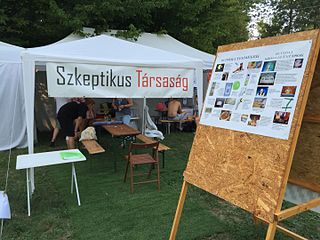
The Hungarian Skeptic Society (HSS) (Hungarian: Szkeptikus Társaság Egyesület) is a skeptic organisation based in Hungary. Founded in 2006, it has been a member of the European Council of Skeptical Organisations (ECSO) since 2007. Its former president, Gábor Hraskó was also chairman of ECSO from 2013 to 2017. The current president, András Gábor Pintér who has been a board member of ECSO since 2017, is also the initiator, producer & co-host of the European Skeptics Podcast.

Edinburgh Skeptics is a nonprofit organisation that promotes science, reason, and critical thinking in Edinburgh and throughout Scotland. It was founded in 2009. The Society hosts regular social and educational events in Edinburgh and has campaigned against the use of homeopathy and challenged claims of ghost sightings.

The Merseyside Skeptics Society (MSS) is a nonprofit organisation that promotes scientific scepticism in Merseyside and the United Kingdom. Founded in 2009, the society has campaigned against the use of homeopathy, challenged the claims of psychics, and hosts regular events in Liverpool, podcasts, and an annual conference in Manchester, QED: Question. Explore. Discover.
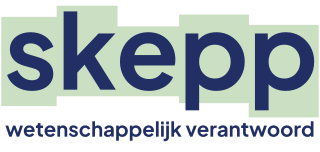
SKEPP is an independent Belgian organization that promotes scientific skepticism. The organization’s name is a backronym for Studiekring voor de Kritische Evaluatie van Pseudowetenschap en het Paranormale.

The European Council of Skeptical Organisations (ECSO) is an umbrella of organisations defending scientific skepticism in Europe.

The Gesellschaft zur wissenschaftlichen Untersuchung von Parawissenschaften (GWUP) is a non-profit organisation promoting scientific skepticism, headquartered in Roßdorf, Germany. Its estimated membership in 2016 is 1300 who are scientists or laypersons interested in science. The GWUP annually hosts a conference with varying key subjects.
QED: Question, Explore, Discover is an annual skeptical conference held in Manchester, England. QED is organised by North West Skeptical Events Ltd (NWSE), a volunteer-owned non-profit organisation originating from a collaboration between the Merseyside Skeptics Society and the Greater Manchester Skeptics Society.

Glasgow Skeptics is a skeptical organisation based in Glasgow, Scotland. It aims to promote public understanding of science, critical thinking, and freedom of expression.
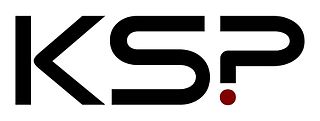
Klub Sceptyków Polskich or KSP is a non-profit, non-governmental organisation actively engaged in the promotion of critical thinking, scientific skepticism and scientific methods. It unites scientists and people interested in science and scientific research in Poland.

Michael "Marsh" Marshall is a British skeptical activist and the editor of The Skeptic magazine since September 2020. He is the co-founder and vice-president of the Merseyside Skeptics Society and co-host of its official podcast, Skeptics with a K, project director of the Good Thinking Society, and has occasionally written for The Times, The Guardian and New Statesman. As of 2022, Marshall is a fellow with the Committee for Skeptical Inquiry.

Amardeo Sarma is a qualified engineer for electrical and telecommunications engineering, chair of the Gesellschaft zur wissenschaftlichen Untersuchung von Parawissenschaften (GWUP) and former chair of the European Council of Skeptical Organisations. Professionally, he works for NEC Laboratories Europe.
